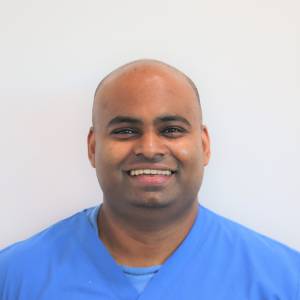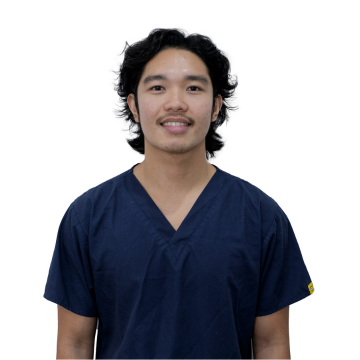Smiles are one of the most instinctive reactions we have, and we often have them without realizing it. However, if we lose our teeth for any reason, it becomes a challenge to do the most fundamental activities such as eating, speaking, and sometimes smiling. In such cases, a dentist or a prosthodontist can help restore your natural smile and function.
There are many treatment methods for such problems, including removable partial dentures, fixed partial dentures, and others. Explore these methods with this blog to decide on the appropriate solution for you.
A] Understanding Removable Partial Dentures
Removable partial dentures are prosthetic dental structures created to replace one or more missing teeth in a patient’s mouth. The structure is designed in such a way that a replacement tooth is affixed to a gum-colored base made of a specific material. It is then positioned in the mouth using clasps that attach to the permanent teeth.
Don’t let missing teeth affect your confidence – get informed today!
B] Types of Removable Partial Dentures
1. Acrylic Partial Dentures
Dentures of these types use acrylic resin for the base and the artificial teeth. Their appearance is more noticeable compared to other materials. Acrylic partial dentures are ideal for immediate tooth replacement and are affordable; however, they are temporary. They are less reliable than metal-based dentures, as the acrylic resin deteriorates faster.
2. Cast Metal Partial Dentures
Cast metal partial dentures consist of a metal base made of cobalt-chromium alloy, which is secured in the mouth and remains attached to the natural teeth. These dentures are removable and are used for patients who have multiple missing teeth. The artificial teeth are usually made of acrylic or porcelain. They are generally more reliable than traditional partial dentures.
3. Flexible Partial Dentures
Flexible partial dentures are lightweight and made from a material called Valplast. They are more natural-looking, comfortable, and minimally invasive. Flexible partial dentures are perfect for patients with metal allergies and other sensitivities.
C] Benefits of Removable Partial Dentures
Functional Advantages
There are several functional benefits of removable partial dentures, such as restoration of the ability to chew and speak properly. Prevention of remaining teeth from shifting, facilitating even distribution of bite. They also help in maintaining facial muscle structure and improving overall oral health.
Aesthetic Benefits
The aesthetic benefits of removable partial dentures are that they fill gaps in your smile, boost self-confidence, restore your natural appearance, and are customisable to match the colour and shape of your existing teeth.
D] Partial Dentures for Different Tooth Locations
Front Teeth Partial Dentures
The role of front teeth dentures is to replace missing front teeth. They contribute in both ways: restoring the natural smile and function. Special consideration is given to aesthetics by the incorporation of natural-looking materials like acrylic and porcelain. Partial dentures for the front teeth are an affordable option, unlike implants or bridges.
Upper and Lower Partial Dentures
The upper and lower partial dentures include specific designs for different jaw structures. Since they cover the palate of the mouth, they may incorporate additional suction for stability, preventing movement during eating and speaking.
E] How Removable Partial Dentures Work
Attachment Mechanisms
There are various attachment mechanisms in removable partial dentures to ensure stability. The common mechanism involves clasps that hold onto the natural teeth to secure the denture in place. Precision attachment is another type of removable partial denture that contains attachment(s) to lock onto the natural teeth, either within the crown or outside.
Fitting Process
The process of fitting a removable partial denture begins with a dental consultation where the dentist assesses your oral health, followed by a comprehensive mouth examination. Precise measurements and impressions are then taken, leading to custom fabrication, and finally, the denture is fitted, and adjustment appointments are made.
F] Helpful Tips After Getting Partial Dentures
Once you are done with getting partial dentures, you need to be careful and follow some basic rules for eating, such as starting with soft foods. Eating foods that are cut into smaller pieces and chewing slowly on both sides. Practice eating at home before going out for social situations. Avoiding extremely hard or sticky food.
G] Daily Maintenance and Care Tips
Daily Cleaning Routine
Always remove and rinse your dentures after meals. Use a soft-bristled brush and a non-abrasive cleaner to maintain safety and hygiene. Avoid contact with hot water, as it can warp your dentures. Soak them in a specialized denture cleaning solution overnight.
Handling Precautions
When handling dentures, ensure it is done over a soft surface to avoid breakage. Make sure to clean your hands each time you handle them. Be mindful to avoid bending or damaging the dentures’ metal clasps. Ensure they are stored in a protective case when not in use.
H] Choosing the Right Partial Dentures
When you plan to get a partial denture done, it is essential to consult with a professional dentist who will guide you in the right direction. Another crucial aspect is budget; evaluate your long-term needs, and try to find a balance. Assess different materials and decide on the appropriate option. As the best dentist in the Sunshine Coast, we consider your lifestyle and personal preferences with the dentist in advance for clarity.
Book your appointment today for a personalised denture fitting experience!
Conclusion
Ideally, oral health requires equal attention to general health and care as its well-being impacts one’s overall health. If you have any oral concerns, it is important to book an appointment with us in a timely manner for expert guidance. Taking such steps can save from future complications and contribute to maintaining good oral health.
FAQs
Q) How long do partial dentures last?
Normally, partial dentures’ lifespan ranges from 5 to 10 years. However, with proper care and maintenance, they can last even longer.
Q) Can I sleep with my partial dentures in?
One can occasionally sleep with partial dentures. But generally, it is not recommended, as its habitual use can lead to bacteria build-up and oral health issues.
Q) How often should I visit the dentist?
For most people, visiting a dentist every 6 months is recommended. but those with good oral health can visit once a year.

Dr. Adarsh Pisharodi
Dr. Adarsh Pisharodi, serving as the principal dentist at Oris Dental, brings a wealth of expertise spanning over 26 years to his esteemed practice. Specializing in cosmetic dentistry, dental implants, and orthodontics, he takes immense pride in rejuvenating countless smiles and instilling confidence in Sunshine Coast residents. As an esteemed member of the Australian Dental Association and esteemed dental societies, he remains steadfast in delivering exceptional care to his patients.















